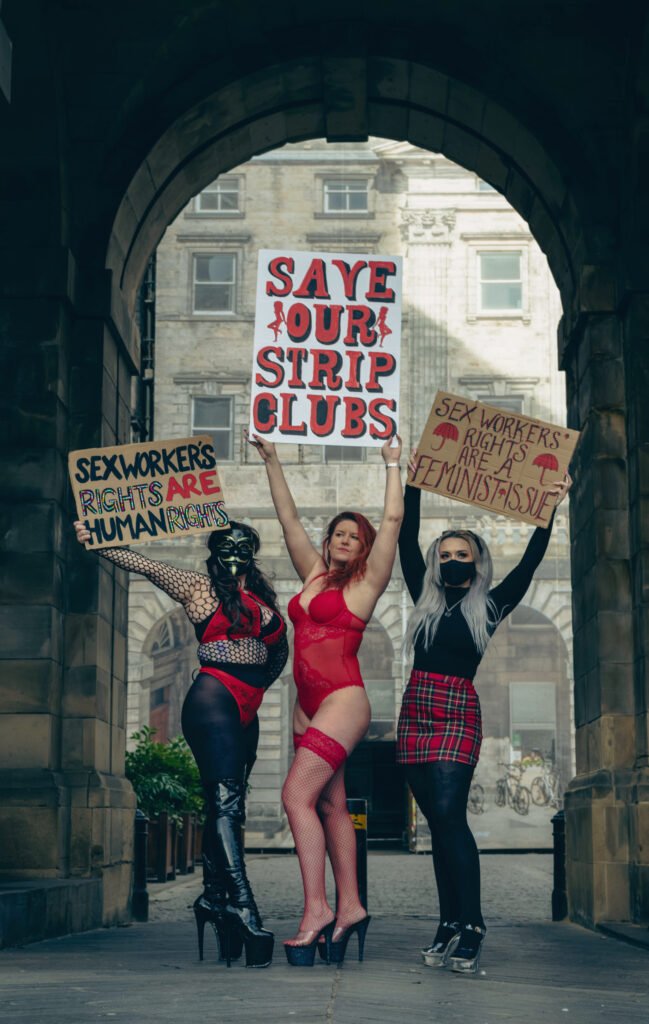The Current Situation in Scotland
The Current Legal Model
In Scotland and the rest of the UK, partial criminalisation makes sex work dangerous. The act of selling sex itself is not illegal, however, “associated activities” such as soliciting and brothel keeping are criminalised. This means that workers cannot work in pairs or groups for safety, and that those who do work in managed brothels have no access to workers’ rights. For street-based and outdoor workers, soliciting in a public place and kerb-crawling (for clients) are both offences. This means there is less time for workers to engage in screening, negotiate terms and take safety measures such as informing others of their whereabouts.
Criminalisation not only makes it harder to access workers’ rights and to work safely, it also acts as a barrier to accessing justice and other forms of support. Workers are often unwilling or unable to report when they have experienced violence at the hands of a client for fear that they themselves will be criminalised.
